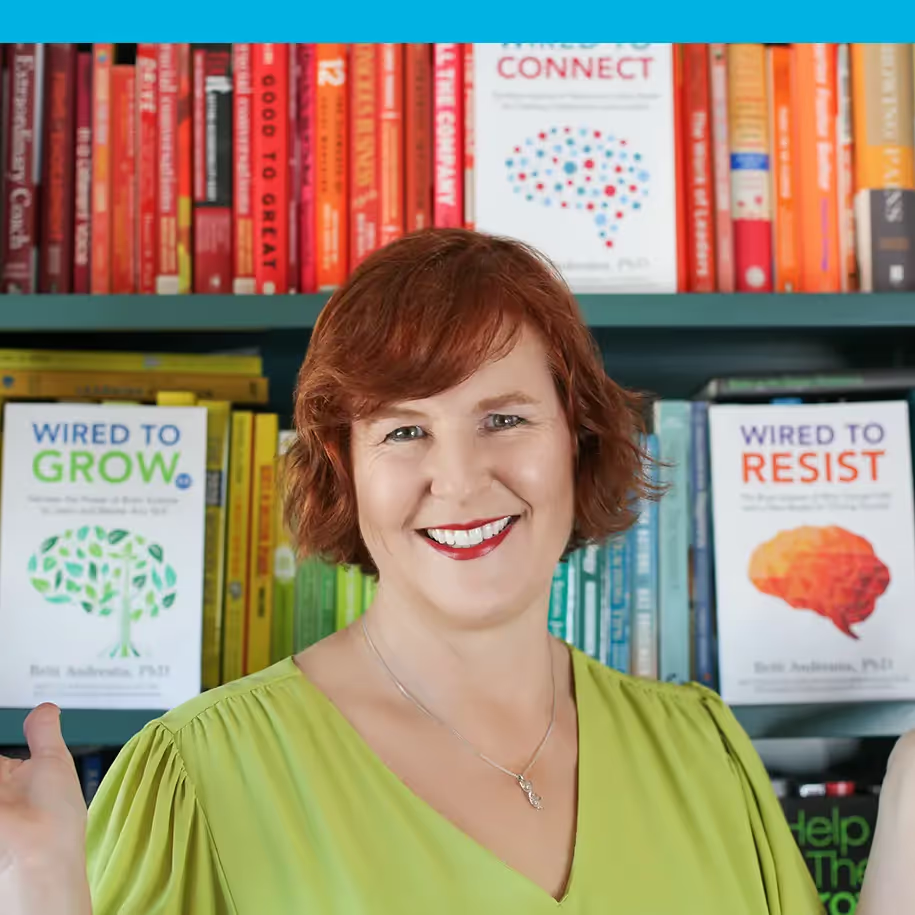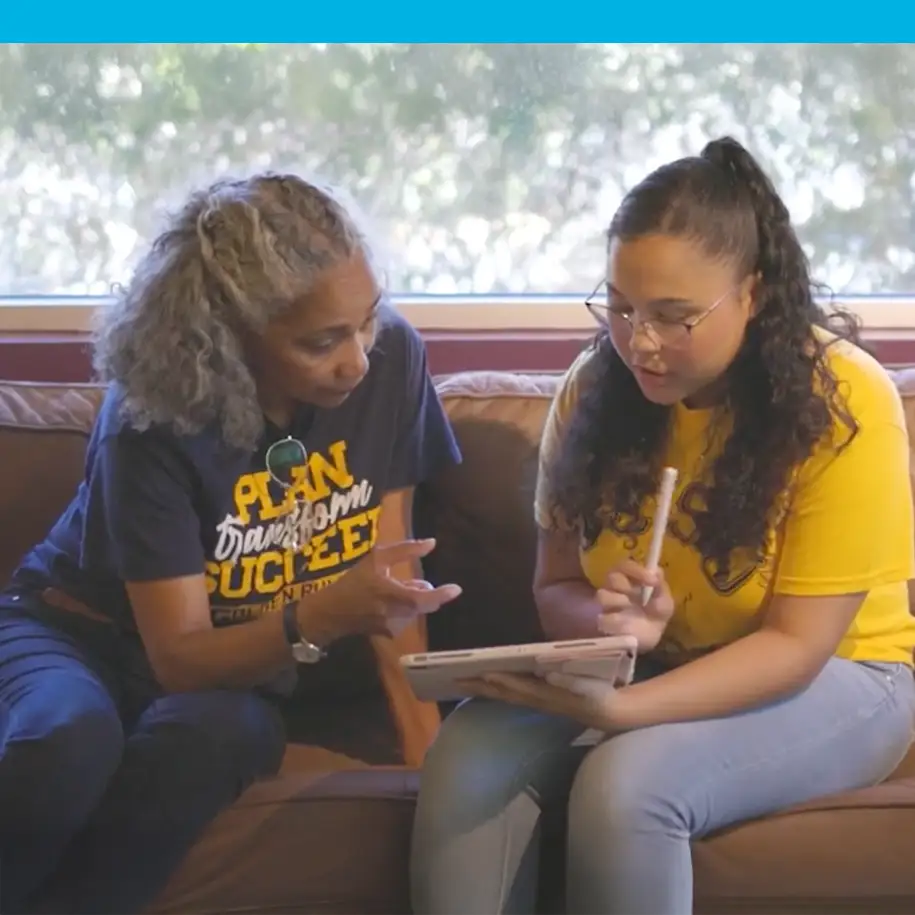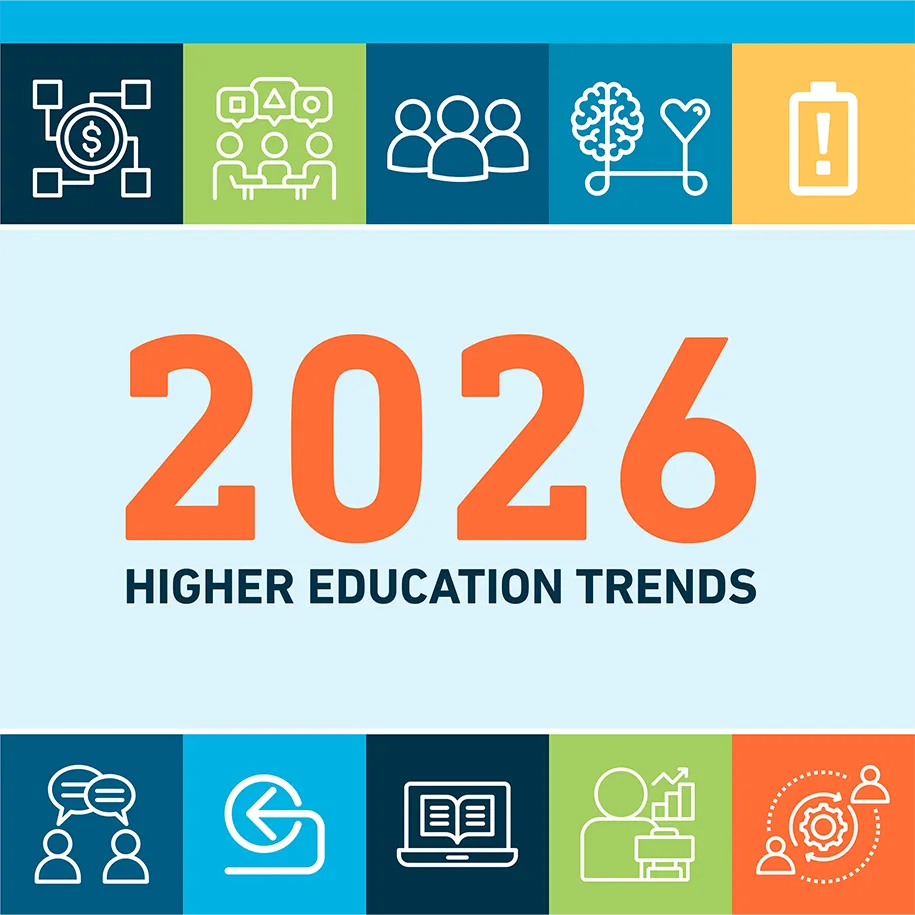
Harnessing the power of purpose with Dr. Britt Andreatta
Why working with your learners to find and explore their purpose is so important
InsideTrack coaching methodology has always emphasized the importance of finding the “why” behind the learner’s goals as a way to keep them motivated and on track. While we know purpose is important, a recent company-wide presentation from Dr. Britt Andreatta made it clear just how important it is. She joined us to discuss her new book, Wired to Become, which explores why purpose and meaningful work are critical for our health and well-being — and how to get there.
Her current findings and data, along with her extensive understanding of the mind, explained the neuroscientific significance of this coaching practice and how taking a learner’s “why” a step further can connect them to their purpose. We’re so grateful to Dr. Andreatta for imparting her wisdom, and we’re excited to share our takeaways from this insightful session to enrich and enhance our own work with students.
Why connection to purpose matters
What exactly is purpose? According to Dr. Andreatta, purpose is an overarching sense of what matters in a person’s life. Driven by your own core values, purpose is what gives your life a sense of meaning – and it often leads to self-transcendence, as your purpose-driven actions result in service or benefit to others. Our sense of purpose can act as a North Star, even to the point of letting us know when we’ve strayed and are no longer “on purpose” in our lives and work.
Dr. Andreatta explains that there are two types of well-being that we experience: hedonic and eudaimonic. Hedonic well-being is focused on the attainment of immediate pleasure and happiness, while eudaimonic well-being results from striving toward meaning, potential and self-realization. Hedonic well-being offers a fleeting sense of joy, but longer-term eudaimonic well-being brings about a deep sense of fulfillment or satisfaction. As you might imagine, purpose is tied to eudaimonic well-being; we do need both types of well-being, though, and experiencing each type of well-being activates different parts of our brains.

Deep fulfillment and brain activation are just two of the positive effects of purpose. Citing several studies, Dr. Andreatta points out that connecting with purpose has been shown to offer significant neural, mental, physical and community health benefits:
- Reduced risk of dementia, Alzheimer's, stroke and age-related decline
- Decreased anxiety, depression and isolation
- Increased self-care
- Reduced hospital stays, heart attack and cardiovascular disease
- Longer lifespans
- Increased healing through tragedy and loss
- Increased protection against stereotyping/increased comfort with diversity
Purpose also promotes organizational success. Dr. Andreatta shares that employees who live their purpose at work are six times more likely to want to stay at their job, and they’re also more likely to go above and beyond for their company. Even before the pandemic, the Harvard Business Review reported that nine out of ten people would willingly earn less to do more meaningful work. That was in 2018. In the aftermath of the COVID-19 pandemic, finding purpose in work became an even more pressing issue — and a significant factor in the Great Resignation. As we enter into 2024, it remains a top HR trend. Which is precisely why we, as supporters for learners and individuals on a journey to career success, cannot underestimate the importance of connecting these individuals to their purpose.
The path to identifying purpose

Even though we as humans are wired for purpose, finding purpose isn’t always easy. Complicating this process, as Dr. Andreatta points out, is that misconceptions about purpose abound. In fact, she has identified 11 common myths of purpose through her reading and research. These three myths from Dr. Andreatta and other researchers, for example, may seem relevant with your work as a student supporter:
Myth #1: Your one purpose is about a worthy cause
In his book, The Purpose Economy, Aaron Hurst suggests we may be conflating purpose with destiny. Storytelling has long followed the formula of the hero’s journey — centering on the conception that the hero must find their one true purpose, the great and noble cause that will change the world. Having grown up enamored with stories about a hero finding their one true purpose, we may forget that, in reality, there are countless ways to embrace purpose. “Purpose isn’t a cause,” Hurst writes. “It is an approach to work and serving others.”
Myth #2: Your purpose will come to you in a sudden revelation
While this happens to a lucky few, it’s not common, largely because most people don’t just have one sense of purpose. We can have many over our lifetime, as we learn, grow and change over time. All of us will be shaped by our life experiences and our own journeys toward and through purpose.
Myth #3: Pursuing your passion is how you will find your purpose
While passion can offer hints about your purpose, it is not the same as purpose. In their book, The Purpose Factor, Brian and Gabrielle Bosché argue that passion grows as you discover your purpose, gain experience and develop your skills. And they mention Walt Disney and Steve Jobs, who became passionate about their work over time. How? By pursuing their purpose.
While the myth-busting can be helpful in figuring out how not to find your purpose, it might not get you — or the students you’re supporting — any closer to that purpose. Dr. Andreatta has some suggestions. More accurately, she has developed questions in four general areas that have proven useful as thought-provoking purpose prompts. These questions work for people of all ages and stages, backgrounds and life experiences, though each factor will certainly impact their answers.

Student supporters and coaches are already familiar with this type of questioning, which is key to the assessment process. Assessment is where the coaching relationship begins. Not only does it help the coach understand where each learner is and where they want to go, but by answering assessment questions, the learner better understands why they’re doing something, what is motivating them, what their ultimate goal is, and more.

Beyond the “why”
Connecting actions to goals and discussing the “why” behind them is already a tried-and-true InsideTrack approach for helping learners build motivation to persist and succeed. In her session, Dr. Andreatta encouraged taking it one step further: working with learners on exploring and connecting to their purpose. Working together, dig into their "why" to see how it relates to their sense of purpose. Pose some of the purpose-finding questions Dr. Andreatta shared. Make it a point to ask about their perspective on connecting to a purpose, and find out what value it has for them.
When your learners are looking to embark on or advance along a career path, you can take the conversation even further, helping them connect their purpose to their work. Encourage them to research the career pathways that interest them to figure out if they connect with the purpose of the pathways and organizations they encounter. Suggest that they look into the practices of the industry and organizations they’re interested in to see if these practices align with their own stated purpose. Propose informational interviews as a way to see if the company culture reflects their purpose and values. Knowing the importance of purpose to life and work, we not only can help students find their purpose, but also work on making our own lives more meaningful.
A bit more about Dr. Andreatta:

Dr. Britt Andreatta is an internationally recognized thought leader who uses her background in leadership, neuroscience, psychology and education to create science-based solutions for today’s workplace challenges. The CEO of Brain Aware Training and former CLO for Lynda.com (LinkedIn Learning), she has over 10 million views worldwide of her online courses and is the author of several best-selling books on the brain science of success including Wired to Grow, Wired to Resist, Wired to Connect, and Wired to Become. In 2022, Britt was named a Top 10 Influencer in Learning; in 2021, she was a Top 20 Learning Influencer and a Top 20 HR Influencer for Leadership Development.
Supporting all types of learners at every stage of their educational and career journey is our purpose. Dive deeper into our coaching methodology to see how it can work for your program.
Coaching solutions proven to advance all learners
Whether you’re looking to help students persist through completion or to improve career outcomes for job seekers and employees, our holistic coaching solutions can help you achieve meaningful outcomes.



